Re: 10 reasons
Posted: Mon Oct 24, 2011 3:12 am
Hmm... What's that noise i hear  Why, it sounds like Shake-n spears rattling
Why, it sounds like Shake-n spears rattling  This could get exciting
This could get exciting 

Art wrote:
If he was adopted by aristocrats (which is a ridiculous idea in the first place)
http://www.shakespeare-online.com/faq/kingsmen.html wrote:
In 1603, Queen Elizabeth I died and James the VI of Scotland became the new monarch, King James I of England. James loved the arts and was very generous to actors, playwrights, and other performers of the day.
In particular, James I loved the theatre, and was captivated by Shakespeare's acting troupe, the Chamberlain's Men.
Within ten days of arriving in London, James insisted that Shakespeare's troupe come under his own patronage. So they were granted a royal patent and changed their name to the King's Men, in honour of James.
If Shakespeare was not adopted by the aristocracy, he was perhaps adopted by king James I!It was indeed lucky for the King's Men that James held them in such high regard, for in 1603, England saw its worst outbreak of the plague in decades, and all the theatres had to be closed. Shakespeare and his troupe were not out of work, however, because James provided them with many engagements, performing for royalty outside of the infected London area.
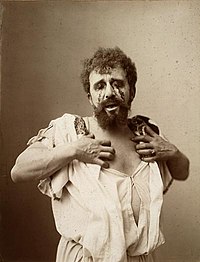




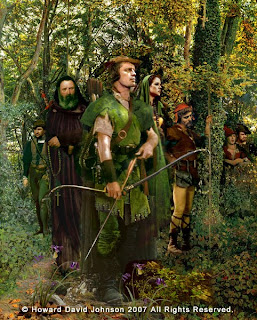

Vulgar people from the underclass show up in Shake-speare comedies & tragedies equally. They all have delightful names like Bullcalf, Costard, Dogberry, Dull, Elbow, Fang, Feeble, Snout, Froth, Mouldy, Nym, Sly, Pinch, Pistol, Quince, Starveling, Shadow, Wart, Abhorson, Bottom, Boult, Shallow, Simple, Snare. Many were veiled references to aristocrats, e.g.:Ann wrote:Shakespeare was a conventional fellow in some respects. He was certainly conventional in that he followed the rule, which had been established in the antique Greek drama, that tragedies are about noble people from the upper classes and comedies are about the vulgar people from the underclass.

The suggestion that Midas might have been the son of a peasant is a signal that a less than heroic fate is awaiting him.Arrian gives an alternative story of the descent and life of Midas. According to him, Midas was the son of Gordios, a poor peasant, and a Telmissian maiden of the prophetic race.
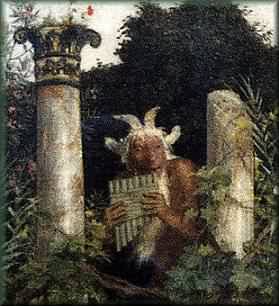



----------------------------------------------------Ann wrote:
So when Shakespeare made his funny characters come from the lower classes, at least most of them, he followed in the footsteps of the storytellers and dramatists of ancient Greece.
Code: Select all
__________ <= 18 =>
P o e t s a r e b o r n e n o t___ {M} a
d e w h e n I w o u l d p r o v__ {E} - T
H i s t r u t h t h e g l a d r______ [E] {M]
E m b e r a n c e I m u s t l o__ [V] {E}
O f n e v e r d y i n g S h a k___ [E] s
p e a r e w h o a l o n e I s a__ [R] g
u m e n t e n o u g h t o m a k [E] - t
h a t o n e
{In the 17th column of 18 Earls of Oxford}

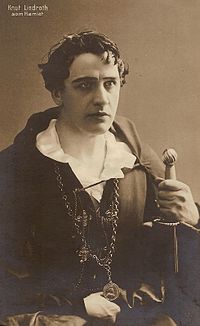

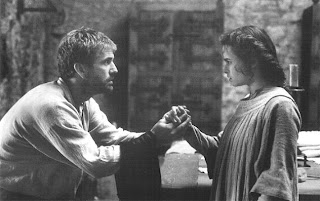


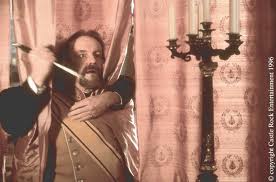
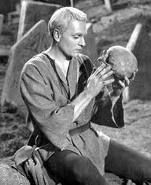



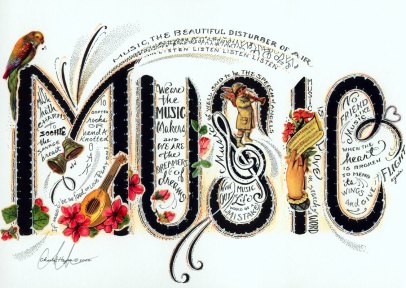

It only scratches the surface:Ann wrote:
I have previously said that Shakespeare probably wasn't much good at wielding the quill at all, and that he might have been quite unable to write his own plays down. I have also said that he couldn't, or wouldn't, come up with his own plots. I have also said that he almost certainly lacked much of the background information he needed in order to make his plays believable, and that others had to give him that background information. That's a lot of things that Shakespeare didn't have or couldn't do.
http://www.doubtaboutwill.org/debate wrote:
Actor Mark Rylance, Chairman of the Shakespearean Authorship Trust,
replies to Prof. Wells' criticisms in a letter to the editor of The Stage magazine:
...............................................
Prof. Wells: “They reiterate nonsense about the level of education revealed by the works without reference to the scholarly studies that have shown that this level is entirely within the compass of anyone who had received a grammar school education.”
Mark Rylance: That an enormous range of knowledge is found in the works is not “nonsense,” and Wells questions no specific area of knowledge mentioned in the declaration. The list includes: “law, philosophy, classical literature, ancient and modern history, mathematics, astronomy, art, music, medicine, horticulture, heraldry, military and naval terminology and tactics; etiquette and manners of the nobility; English, French and Italian court life; Italy, and aristocratic pastimes such as falconry, equestrian sports and royal tennis.”
http://en.wikipedia.org/wiki/William_Shakespeare wrote:neufer wrote:It only scratches the surface:Ann wrote:
I have previously said that Shakespeare probably wasn't much good at wielding the quill at all, and that he might have been quite unable to write his own plays down. I have also said that he couldn't, or wouldn't, come up with his own plots. I have also said that he almost certainly lacked much of the background information he needed in order to make his plays believable, and that others had to give him that background information. That's a lot of things that Shakespeare didn't have or couldn't do.http://www.doubtaboutwill.org/debate wrote:
Actor Mark Rylance, Chairman of the Shakespearean Authorship Trust,
replies to Prof. Wells' criticisms in a letter to the editor of The Stage magazine:
...............................................
Prof. Wells: “They reiterate nonsense about the level of education revealed by the works without reference to the scholarly studies that have shown that this level is entirely within the compass of anyone who had received a grammar school education.”
Mark Rylance: That an enormous range of knowledge is found in the works is not “nonsense,” and Wells questions no specific area of knowledge mentioned in the declaration. The list includes: “law, philosophy, classical literature, ancient and modern history, mathematics, astronomy, art, music, medicine, horticulture, heraldry, military and naval terminology and tactics; etiquette and manners of the nobility; English, French and Italian court life; Italy, and aristocratic pastimes such as falconry, equestrian sports and royal tennis.”
And Shakespeare might have had someone, or maybe several people, who helped him with the rest. Why not? Who is to say that he wasn't the sort of person who learnt, when he was in London, to find the sort of people who would help him with these things?Grammar schools varied in quality during the Elizabethan era, but the curriculum was dictated by law throughout England,[13] and the school would have provided an intensive education in Latin grammar and the classics.
Perhaps Shakespeare's "secretary" helped him write down these poems, assuming I'm correct that Shakespeare was neither fond of nor good at the act of writing.In 1593 and 1594, when the theatres were closed because of plague, Shakespeare published two narrative poems on erotic themes, Venus and Adonis and The Rape of Lucrece.
This suggests that no Shakespearean sonnets exist that can be dated to a time after 1609. Perhaps Shakespeare's "secretary" had died, retired or had had a falling-out with Shakespeare.Published in 1609, the Sonnets were the last of Shakespeare's non-dramatic works to be printed.


Common Sense.Ann wrote:
Shakespeare might have had someone, or maybe several people, who helped him with the rest. Why not? Who is to say that he wasn't the sort of person who learnt, when he was in London, to find the sort of people who would help him with these things?
Are you just trying to be contrary, Ann, or do really believe in the illiterate Stratford boob?Ann wrote:This suggests that no Shakespearean sonnets exist that can be dated to a time after 1609.Published in 1609, the Sonnets were the last of Shakespeare's non-dramatic works to be printed.
Perhaps Shakespeare's "secretary" had died, retired or had had a falling-out with Shakespeare.




I'm not "suggesting" that Shakespeare of Stratford was illiterate, either.Ann wrote:
I'm not suggesting that Shakespeare was illiterate.
I sleep too little.So what do you teach, Ann
(And when do you sleep)
I'm trying to figure out why ANY intelligent person, having been presented with so many of the facts, could still believe in the Stratford myth. The simple fact that Shaksper's children (and grandchild) were illiterate is more than enough evidence for me. That in conjunction with ALL the rest should clinch the case for any opened minded individual as well. While I can totally understand why most people (even lovers of Shake-speare) could care less about the issue, I simply cannot understand why a reasonable unbiased person interested in the question could still believe in the Stratman. Even Helen Keller figured it out, why can't you?Ann wrote:
As to why I find it plausible that Shakespeare had a "secretary", remember that he was producing work material for his acting group. They benefited - financially, too! - if he could produce a lot of plays. One of the people in the theater company that Shakespeare belonged to might have been good at writing, at least far better at it than Shakespeare, so that other person might have taken it upon himself to write down what Shakespeare dictated. Goodness, Art, I see it happening at school during pair work all the time. One kid has the ideas, the other kid writes them down.

To me this strongly suggests a gradual winding down of Shakespeare's creativity, not an abrupt exit on his part from the literary scene.After 1606–1607, Shakespeare wrote fewer plays, and none are attributed to him after 1613.[52] His last three plays were collaborations, probably with John Fletcher,[53] who succeeded him as the house playwright for the King’s Men.
Well, Shakespeare apparently quit writing - or at least, he quit publishing literary works - in 1613, at the age of 49. Then he died three years later. In other words, Shakespeare lived to his fifties, which was normal for someone who had survived his mid-teens in the 16th and 17th century. But a man in the 17th century would not necessarily be in the prime of his life when he was in his late forties.The average life span in the 17th century was shorter than today. Average life expectancy at birth was only 35. That does not mean that people dropped dead when they reached that age! Instead many of the people born died while they were still children. Out of all people born between one third and one half died before the age of about 16. However if you could survive to your mid-teens you would probably live to your 50s or early 60s.


So Shakespeare was poor in his youth, but he died rich. http://en.wikipedia.org/wiki/William_Shakespeare wrote:As a husband Shakespeare offered few prospects; his family had fallen into financial ruin, while Anne, from a family in good standing socially and financially, would have been considered a catch.
How did Shakespeare earn so much money that he could leave a large estate to his eldest daughter? The way I see it, Shakespeare must have been financially successful at his job. So what was his job? Well, acting, of course. Even more importantly, creating plays for his theater company. And generally taking care of his theater company and getting a share of its profits.In his will, Shakespeare left the bulk of his large estate to his elder daughter Susanna.
Some of Shakespeare's plays were published in quarto editions from 1594. By 1598, his name had become a selling point and began to appear on the title pages.


Stratfordian's delight in pointing out that:geckzilla wrote:
The videos and lists you've posted simply haven't been presented in an unbiased manner to me. I find it possible that Shakespeare's works were written by someone else but the presentation is questionable at best to me. The first one I watched fully and it struck me as cherry picked and emotionally charged, both of which are classic warning signs that I'm not getting the whole story. For all I know it's literature's equivalent of global warming denialism.
Much of the literature of the King James Bible smells sweet as wellbystander wrote:Personally, I think it's "Much Ado About Nothing".
- What's in a name? that which we call a rose
By any other name would smell as sweet;